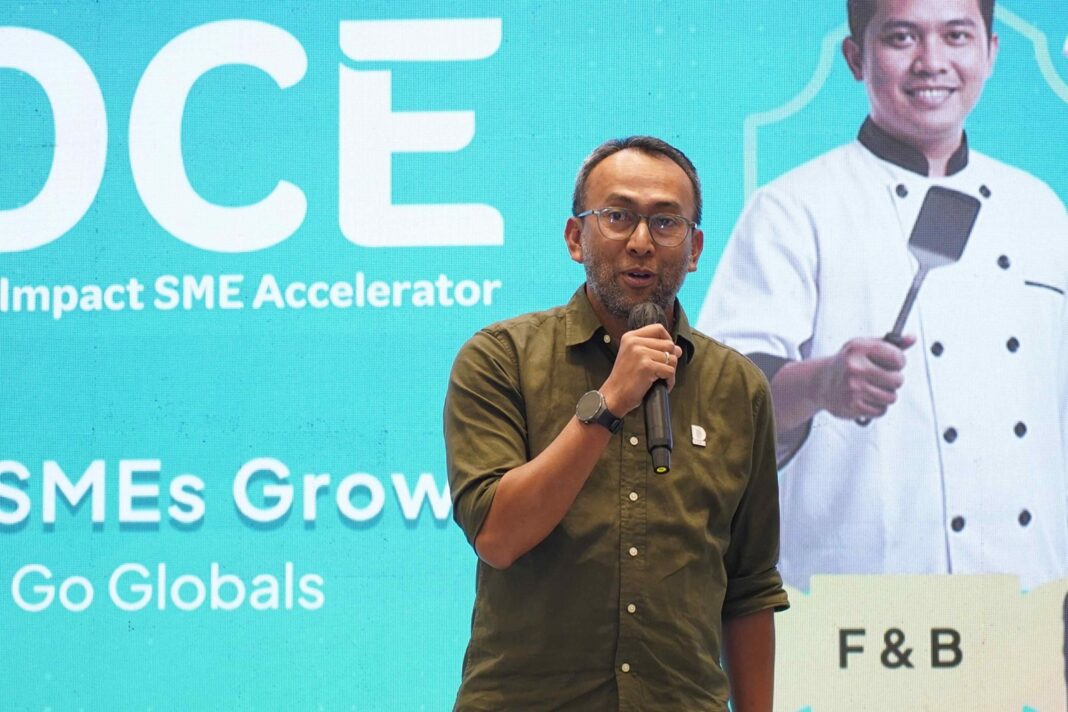Why AI Matters for Local Businesses Now
Telkomsel’s fifth Digital Creative Entrepreneurs program arrives at a moment when local small and medium enterprises must move beyond basic digitization into practical AI adoption. AI for SMEs is no longer a theoretical benefit; it can deepen customer insight, speed up product development cycles, and automate repetitive tasks so founders can focus on strategy and growth. The DCE approach aims to translate AI capabilities into everyday business processes, from market research to design, from personalized marketing to inventory forecasting, so SMEs can compete beyond local markets.
Program Structure That Targets Measurable SME Acceleration
The DCE ke-5 (fifth edition) centers on an “AI-enabled SME growth” theme and targets four main tracks: Fashion, Food and Beverage, Personal Care, and Craft. Telkomsel launched the program with a kick-off event and will continue with a multi-city roadshow, onboarding activities for 500 participating businesses, pitching tracks to select finalists, and an academy phase for intensive incubation. These structured stages are designed to move participants from awareness to practical implementation and market readiness.
The program’s operational model is intentionally hands-on. After an initial onboarding stage where participants learn about Telkomsel’s digital ecosystem and practical AI tools, selected businesses will pitch ideas that focus on implementing AI for SMEs in real use cases. The top finalists enter an academy with mentoring, bootcamps, and market-preparation support leading up to a summit and awarding event planned for the following year.
What Participants Can Expect: Tools, Mentorship, and Market Access
Practically, participants should expect three core offerings. First, curated toolkits and AI use-cases tailored to micro and small business needs, such as customer segmentation, creative design assistance, content generation, and demand forecasting. Second, mentorship from industry experts who translate complex AI concepts into simple, repeatable workflows. Third, access to networks including distribution partners, potential buyers, and investor-friendly demo days, which are critical for converting digital transformation into revenue.
The DCE cadence, which includes roadshow, pitching, academy, and summit stages, is designed to give entrepreneurs time to test, iterate, and validate AI-led changes in their businesses, rather than simply learning theory. That practical emphasis is what drives real SME acceleration in Indonesia.
Measurable Track Record and Why It Matters
DCE is not starting from zero. Since its launch in 2021, the program has attracted nearly ten thousand registrations and produced hundreds of active alumni, demonstrating a measurable footprint in the Indonesian SME ecosystem. This history gives the initiative credibility among founders who may otherwise hesitate to invest time in experimental technology.
A program with established alumni and case studies makes it easier to show skeptical stakeholders, from family-owned business boards to local distributors, concrete returns from adopting AI and participating in SME acceleration initiatives in Indonesia.
How AI Use-Cases Translate to Business Wins
In a practical sense, AI for SMEs shows up in everyday operational improvements that compound into competitive advantage:
- Customer understanding: Small shops can use low-cost AI analytics to discover high-value customer segments and tailor promotions to those groups.
- Content and design: Fashion and craft makers can accelerate design ideation and product descriptions using generative models, reducing time to market.
- Demand forecasting: Food and Beverage businesses can better predict seasonal sales and manage perishable inventory to cut waste and improve margins.
- Personalization: Personal Care brands can deliver bespoke product recommendations that lift conversion on digital channels.
These benefits are not abstract. The DCE curriculum aims to move participants from pilot to production-ready implementation so AI gains convert to revenue and improved margins.
Challenges and Practical Risks To Manage
Implementing AI at micro and small scale brings unique challenges. These include data scarcity, limited technical capacity, and cash-flow sensitivity. The program’s success depends on converting high-level AI promise into low-cost, low-complexity solutions that yield immediate value. Mentorship and staged milestones, such as small experiments, quick wins, and repeatable templates, are essential for overcoming these constraints.
Another risk is overreliance on tools without strategic direction. AI-enabled SME growth must be guided by a clear business objective: increased revenue, lower costs, or deeper customer engagement. Without this focus, technology becomes a costly distraction rather than a lever for scale.
Roadmap for Founders Who Want to Apply What They Learn
Founders who join DCE or pursue AI adoption elsewhere should follow a pragmatic three-step approach:
- Identify one measurable business problem where AI could have a direct impact, such as reducing stockouts, increasing repeat purchase rates, or speeding up design iteration.
- Run a short experiment that requires minimal resources and yields fast feedback. Use off-the-shelf AI tools or recommended toolkits to keep complexity low.
- Scale the pilot only after measurable improvement. Then integrate the workflow into day-to-day operations and prepare the case study to attract partners or buyers.
This iterative, results-oriented approach underpins meaningful SME digital transformation and supports sustainable growth.
Long-Term Impact: Local Brands Going Global
The strategic aim behind focusing on AI-enabled SME growth is to create Indonesian brands that can meet quality, design, and distribution standards in regional and global markets. Building capabilities in design, production planning, customer insight, and digital marketing is the pathway to export readiness. Programs like DCE that combine technology with mentorship and market access create a fertile environment for local companies to graduate to broader markets.
Conclusion: Practical, Measured, and People-First
Telkomsel’s DCE ke-5 presents a pragmatic model of SME acceleration in Indonesia by focusing on AI-enabled SME growth that is measurable and directly applicable. The value lies in practical implementation: short experiments, mentorship, and market-readiness steps that translate AI promise into business impact. For founders who treat AI as a tool to solve specific business problems, not an end in itself, the program offers a fast track to better margins and broader markets.
Read More






 Friday, 27-02-26
Friday, 27-02-26







